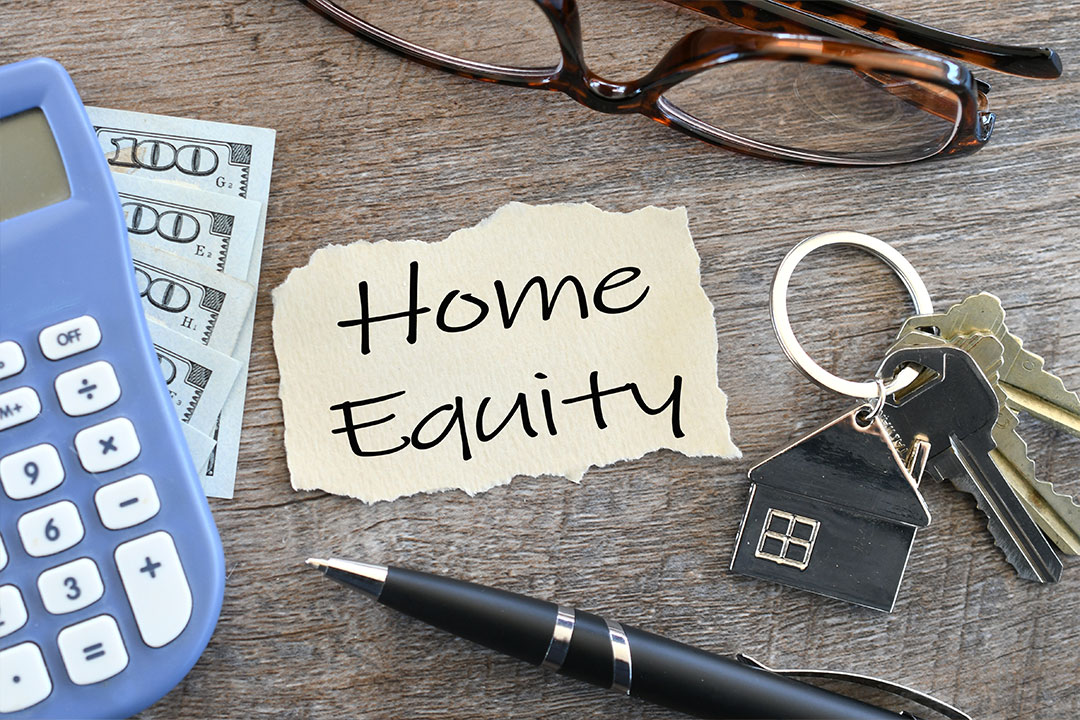Building equity in your home gives you more leverage and opportunity in the future. But if you do choose to tap into your home equity, then this is not a decision that you should take lightly, as it can greatly impact your finances.
To better understand the benefits you can get out of your home equity, let’s break down some of the ways that homeowners choose to leverage their equity, as well as the key differences between a cash-out refinance, home equity loan (HEL), and home equity line of credit (HELOC).
Key takeaways
- What is home equity and how do I calculate how much equity I have in my home?
- What are the differences between a cash-out refinance, home equity loan (HEL), and home equity line of credit (HELOC)?
- What are some of the common ways that homeowners use home equity to their benefit?
- What are some potential risks to tapping into my home equity?
What exactly is home equity?
Home equity is the difference between what you owe on your mortgage and what your home is currently worth.
To calculate your home equity, take the current value of your home and subtract what you owe on your mortgage.
For example, if the current value of your home is $250,000, and you owe $100,000 on your mortgage, then you have an equity of $150,000.
The more you pay off your mortgage, the higher your home equity (as long as your home value doesn’t decrease).
If your home value decreases faster than the rate at which you pay off your mortgage, then your equity will decrease as well.
There are 3 main ways to build equity in your home: by paying off your mortgage, your home increases in value, or a combination of the two.
Let’s talk about some of the different ways you can tap into your home equity.
Cash-Out Refinance
In a cash-out refinance, you refinance your current home loan for more than what you owe on your mortgage. You can then receive the difference (the new loan amount minus what you owe) in cash.
Let’s say you take out a loan for a house that costs $400,000. A couple years later, you’ve paid off $50,000 of that mortgage, and good news! Your house has increased in value to $450,000!
This means you now owe $350,000 on your original mortgage, and you have $100,000 in home equity.
If you choose to refinance your current loan for $400,000, then you can receive a $50,000 check at closing.
The $50,000 sum is the difference between your new loan amount and what you owe on your original mortgage.
However, you will need to repay that $400,000 in monthly payments with interest, along with the closing costs of refinancing.
The amount of extra money you can get from this cash-out depends on how much equity you have. The more equity you have in your home, the more money you can take from a cash-out refinance.
What are some of the common ways that homeowners use a cash-out refinance to their benefit?
A big one is debt consolidation. This is when you take cash out of your home equity and use that cash to pay off high interest credit card debt.
Other common uses for a cash-out refi is to pay for home renovations, investing in things such as real estate, stocks, or your business, also paying for travel or major life events like a wedding.
With a cash-out refinance, what could potentially go wrong here is if someone is a bit impulsive and doesn’t carefully consider exactly HOW they want to use that money.
Let’s say someone takes cash out of their home equity, and they spend that money on vacations, boats, shopping, but not necessarily investing in their future.
Now that’s completely up to them, it’s their money to spend as they choose.
But a financial advisor may warn that person that if they’re going to take equity out of their home, they should invest that money into something that’s going to give them greater financial gains in the long run.
Of course, there’s investing in your financial future, but there’s also investing in your quality of life. Paying for a vacation may not grow your net worth, but making happy memories with family may be well worth it.
That’s up to the homeowner of how they want to spend that money, but it’s recommended that you think carefully about how you want to spend your money when you do a cash-out refinance.
Home Equity Loan (HEL)
In addition to a cash-out refinance, another way to use your home equity is a home equity loan.
Some people may confuse a home equity loan with a cash-out refinance, but they’re actually separate things.
A cash-out refinance replaces your current mortgage with a new one, but a home equity loan is taking out a second mortgage altogether.
With a home equity loan, you’re using the equity in your home as collateral.
You receive a lump sum payment when you first take out the loan, then you pay that off over time plus interest.
The reason why homeowners may use a home equity loan is to convert their equity into cash, oftentimes investing that cash into home renovations, which can raise the value of your home.
Home Equity Line Of Credit (HELOC)
A home equity line of credit (also known as a HELOC) is similar to a home equity loan, except instead of receiving a lump sum payment, you get a line of credit that allows you to withdraw funds gradually as you need to borrow them.
With a HELOC, there’s a “draw period” which is a period of time (usually around 5-10 years) in which you’re allowed to draw out money as needed. At the end of the draw period, you can no longer withdraw funds.
Tapping Into Your Home Equity: The Takeaway
When tapping into your home equity, whether it’s with a cash-out refinance, a home equity loan, or a home equity line of credit, you may want to talk to a financial advisor to help you decide exactly how you want to use the money you’re taking out.
Tapping into your home equity gives you the option to invest in assets that can help you build wealth and grow your net worth.
There’s a huge potential benefit here when it comes to investing either in your financial future or in just the overall quality of your life.
But if used incorrectly, it’s possible to get into a situation where you’re taking on more debt without it really benefiting you in the long run.
Therefore, when tapping into your home equity, do not take these decisions lightly. You may want to talk to a mortgage advisor you really trust to help you weigh your options.
And you may want to talk to a financial advisor as well to determine how you want to leverage the equity you’ve built in your home.













